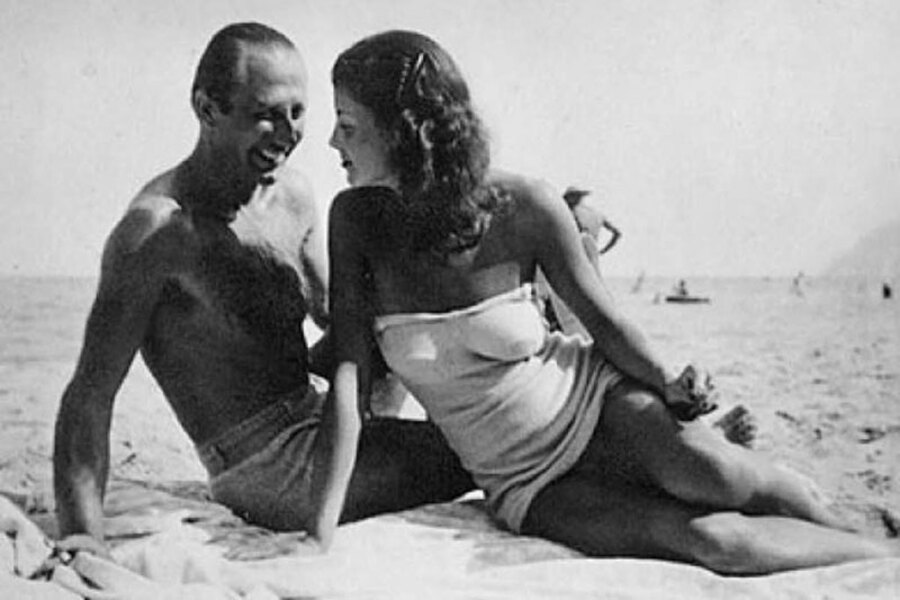
Photo: Privatna arhiva
My name is Popov, Dusan Popov
Many men wished they could be in his shoes for at least a short while. Handsome and refined, the man called Bond – James Bond became the role model for many whose eyes were glued to their screens for his adventures. Movie versions of his adventures did paint a slightly embellished image of him, adding in many intriguing details to keep the viewer’s attention. The director Ian Fleming did so by portraying agent 007 as a serial seducer, a man who loved to live in luxury and displayed a flawless, refined sense of style.
Still, we know that Hollywood adaptations never happen without a bonus serving of fiction. We also know that the adventures of (mostly) fictional characters don’t often have much to do with reality. After all, what kind of secret agent flaunts his wealth and luxury, making himself an easy target and gambling with his life? Doesn’t it make more sense that he lives a quiet, private existence the kind we would expect from a secret agent?
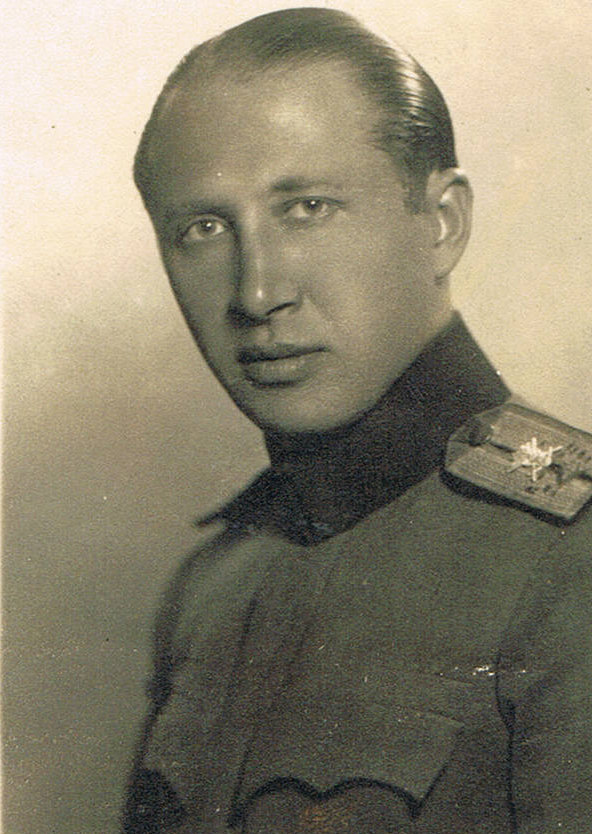 Photo: Wikipedia / Dusan Popov - younger days of Popov
Photo: Wikipedia / Dusan Popov - younger days of Popov
This quirk is exactly what makes the story about Bond so authentic. Fleming found inspiration for it in real life, from the life and work of a gentleman he knew personally. James Bond became the spit and image of one of the most famous global secret agents who went by the name of Popov, Dusan Popov.
Just like the hero of Fleming’s novel made in his image, Fleming was all that you’d never expect from an intelligence agent. Charming and charismatic with a distinct need to be noticed, but just as intelligent and cunning to make sure nobody suspects his true intentions. Maybe this hides the secret of his success: seeing how he was always in the center of attention it was hard to imagine that he was the person privy to all secrets, large and small, of all the major participants in WWII. But how did ‘one of ours’ come to bear the title of an exceptional secret agent?
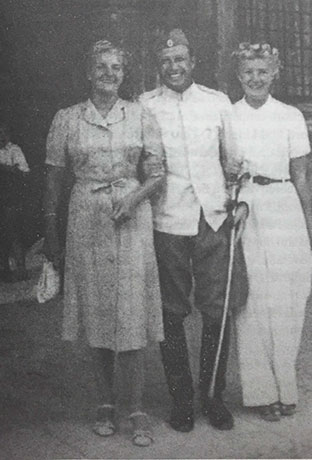 Photo: Private archive - tricycle in the company of pretty ladies
Photo: Private archive - tricycle in the company of pretty ladies
One man – three identities
At the start of the 20th century, Dubrovnik was a cosmopolitan, freedom-loving city, ideal for the life and existence of a wealthy family like the one Popov came from. Though he was born in Titel, his family quickly moved to the seaside and Dusan is sent to school in England, France and Germany. It was probably the freedom-loving spirit of Dubrovnik combined with the time he spent in various global capitols that resulted in such a cosmopolitan persona who had an affection for luxury and the bohemian life.
By 1940 WWII has taken full swing and found Popov in the British capitol city. Here, Dusan saw the opportunity to become an agent for the MI6 intelligence agency – a Serbian-born James Bond. He thus began collecting classified information about the plans of enemy Germany. After the occupation of Yugoslavia, the British in 1941 send Popov back to Belgrade where one of his friends managed to recruit him to work for the German counter-intelligence agency in Abwehr. Not long after, Dusan also reports in with the Yugoslavian refugee government in London and also became their agent for special missions.
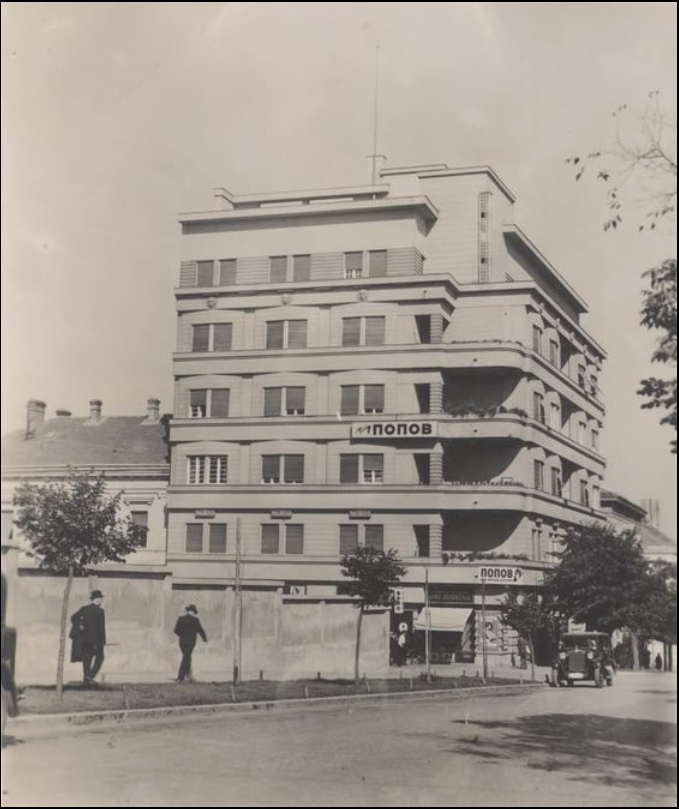 Photo: Dusan Sevic - Popov family building at 5 Francuska street where the famous agent lived
Photo: Dusan Sevic - Popov family building at 5 Francuska street where the famous agent lived
That was how in less than two years Popov had taken on up to 3 different identities. To the British intelligence he was agent Tricycle, Abwehr gave him the code-name Ivan and to the Yugoslavian government he was Dusko.
You can thank the Yugosliavian 007 for the victory over the Third Reich
Immediately after joining the German counter-intelligence, Popov also moved to a different location. During the war Portugal managed to maintain neutrality and the luxurious vacation spot Estoril, not far from Lisbon, was the ideal place for this gentleman who was used to extravagance and luxury. Here, Popov would meet with German agents, gaining key information about the Third Reich plans from them. Then he’d travel back to London and share that information with the British MI6. At the same time, he got instructions from the Brits on which information – true or false – he was to relay to the Germans with answers prepared in advance for any ‘trick questions’ they might ask him.
During his stay in Lisbon, Popov was under scrutiny of his watchful MI6 colleague – the very same who would go on to immortalize his adventures. Namely Ian Fleming, at the time a secret agent himself, was personally in charge of monitoring their triple-agent. Both the German and the British side did state to Dusan that he was embarking on this adventure at his own risk, meaning that if he were discovered he couldn’t count on either German nor British support.
This didn’t seem to faze the triple-agent even slightly. Moreover, he was so sure of himself that he decided that his bohemian pursuits didn’t need to suffer at the expense of his spying activities. That was how he conducted himself – despite all the risks, he spared no expenses, enjoyed the company of beautiful ladies and was often-seen frequenting elite casinos around Lisbon.
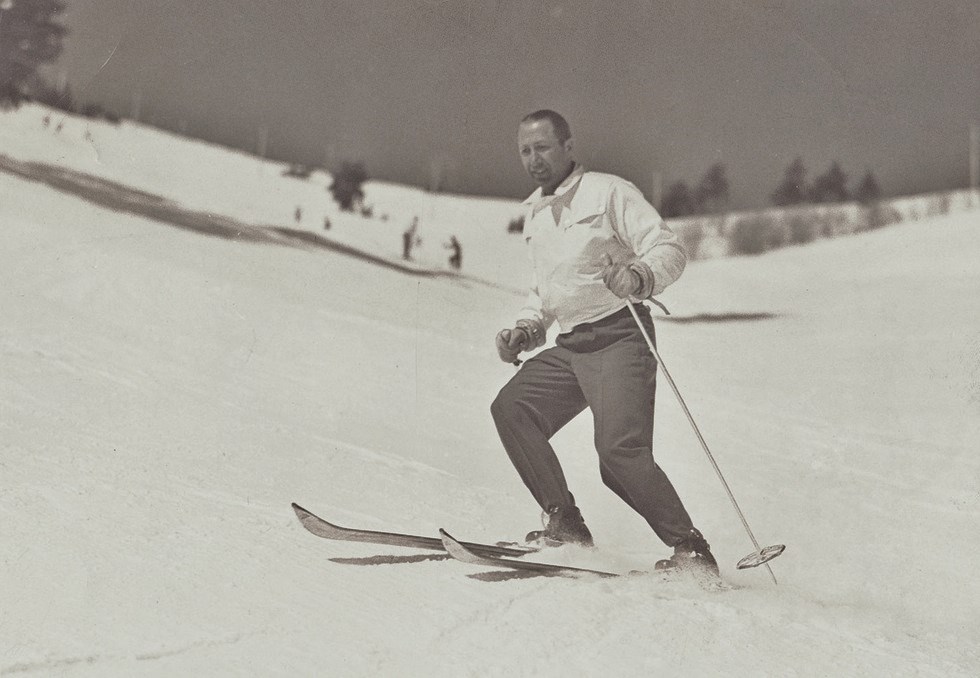 Photo: private archive
Photo: private archive
And indeed, not many would suspect that they were in the company of a secret agent. They were usually thought to be discreet and measured, never risking drawing too much attention to themselves. Dusan Popov on the other hand was anything but. Still, much of his extravagance was thanks to his role as an intelligence agent, because it was a very lucrative profession for the time.
But in the end, this wasn’t that surprising. In addition to constant risk, the information that Popov obtained greatly contributed to the success of the Allies and foiling the enemy plans with the goal of ultimate victory.
That’s how Popov already had a worked-out network of so-called fictive spies in Abwehr. Their task was to send false information about the French invasion plans to the German headquarters. One of the many successful operation known under codename “Fortitude” was tasked with deceiving Hitler’s command. Namely, Popov “warned” the Germans that Ally forces, in order to liberate Europe, would disembark in French Nord Pas des Calais. The plan was, of course, completely different – the Allies had long since planned to disembark in Normandy.
Still, Popov managed to convince the Germans that this was a clever ruse, a bait meant to foil their plans. One of the ally colonels later admitted that Dusan was ‘personally responsible for keeping seven German divisions’ at Pas de Calais for three weeks after they had disembarked in Normandy.
In the end it was the battle for Normandy that determined the course of WWII. Popov and the British MI6 managed to trick the enemy and thus save many innocent lives.
 Photo: Newsweek - Plan for operation "Bodyguard"
Photo: Newsweek - Plan for operation "Bodyguard"
A record that blurs the line between fact and fiction
Not all of Dusan’s endeavors were a success, however. Though he was the first to notify the Americans about Japanese plans to invade Pearl Harbor, the head of FBI back then – Edgar J. Hoover dismissed Popov as an unreliable source. It was supposedly Dusan’s proclivity towards the bohemian life and reckless spending that resulted in Hoover’s poor impression of his character. FBI thus decided to cover up this bit of information which later resulted in a dire loss for the American military. Dusan’s predictions unfortunately came through and made Pearl Harbor a tragedy that could’ve easily been avoided.
After the war ended, Popov received many decorations for his achievements both from the British and the Germans. Though he didn’t continue in espionage, he did proceed to enjoy a life of luxury until his death in 1981.
All the information about Dusan’s activities after the war were taken over by the American FBI. It wasn’t until the beginning of the 21st century that one of his sons, Marko Popov, managed to retrieve his father’s file from the MI6 service.
After going through his biography consisting of an impressive 2.870 pages, he realized that all the stories about his father were true. This means that Fleming, Dusan’s former colleague, had very reliable sources when he immortalized the adventures of agent 007 in his novels. Moreover, 36 books have so far been written about the legend of global espionage, and Dusan’s name also found its place on the list of 10 greatest British agents of all times.




 7 ℃
7 ℃




